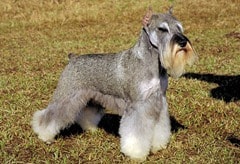Small dog breeds are usually the ones that are chosen as companion dogs if the space is limited, usually when the owner is living in the city. A small dog is not necessarily a companion dog, some of these breeds being used for hunting or other purposes, but it’s how most people see them. Below you can find a list of small dog breeds which should be of help if you’re looking for a companion.
- Aberdeen Terrier
- Affenpinscher
- Alaskan Klee Kai
- American Eskimo Dog
- American Hairless Terrier
- American Lamalese
- Australian Terrier
- Basset Artesien Normand
- Belgian Griffon
- Berger du Languedoc
- Bolognese
- Border Terrier
- Boston Terrier
- Brazilian Terrier
- Brussels Griffon
- Bull Terrier Miniature
- Cairn Terrier
- Cardigan Welsh Corgi
- Cavalier King Charles Spaniel
- Cesky Terrier
- Chihuahuas
- Continental Toy Spaniel
- Dachshund Miniature, Long Haired
- English Toy Spaniel
- Fox Terrier Toy
- French Bulldog
- Havanese
- Icelandic Sheepdog
- Japanese Terrier
- Keeshond
- Lowchen
- Maltese
- Manchester Terrier
- Mexican Hairless Miniature
- Mexican Hairless Standard
- Mi-Ki
- Norfolk Terrier
- Norwich Terrier
- Pinscher Miniature
- Pomeranian
- Pomimo, American Eskimoand and Pomeranian
- Puffin
- Pug
- Pugalier, Pug and the Cavalier King Charles Spaniel
- Rat Terrier
- Schipperke
- Scottish Terrier
- Sealyham Terrier
- Shih Tzu
- Silky Terriers
- Skye Terrier
- Standard German Spitz
- Swedish Cattle Dog
- Tibetan Spaniel
- Welsh Corgi Pembroke
- West Highland White Terrier
- Yorkshire Terrier
Advantages of Small Dog Breeds

One of the more obvious reasons why people prefer smaller dog breeds is their size. Small apartments require small dogs, even though their owners might prefer something bigger. It can be cruel to a dog to keep him in a space that is insufficient for his needs, even if he’s being taken out for walks on a daily basis. The dog is still unhappy if he has to spend a lot of hours in a very small space, especially if he’s a high energy dog. The size of these dogs also makes them easier to travel with. All you have to do is get a small carrier to put them in, or simply use a bag which is held over the shoulder.
More often than not, the care for a small dog is easier to handle as well. They don’t eat as much food and they don’t leave as much hair in the house, so owners with allergies have an easier time as well.
The AKC has a list of popular breeds, which includes a couple of small dog breeds in it. This shows you just how many people prefer these small dogs. The purebred dog breeds found in this top 10 list are the Dachshund, Yorkshire Terrier, Toy/Miniature Poodle, Miniature Schnauzer and the Shih Tzu.
Aggressiveness
Quite a few people make the mistake of thinking that large breeds are aggressive and small breeds are friendly. That couldn’t be farther than the truth. A small dog can have the same level of aggressiveness as a large guard dog. Though they might not be able to attack an intruder, they will make enough noise to let you know that there is someone in the house. In plenty of cases these small dog breeds attack targets much larger than them, so they certainly can have courage.
Buying Puppies From Small Dog Breeders
Whenever you’re buying a purebred you should do it from a breeder that is recognized for the quality of his puppies and for the way he treats them. You can either ask people for recommendations if they’ve bought a small dog in the past, or you can use the Internet and find reputable breeders in your area.
Puppies from small breeds can have certain medical problems, like congenital defects or hypoglycemia, so take him to a vet as soon as you buy him. This should be something you do for all new puppies, not just for small breeds.
